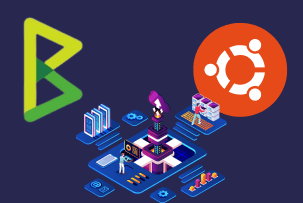Metered vs unmetered bandwidth
12:04, 19.01.2021
Types of Bandwidth
There are different types of bandwidth when it comes to data processing. It is important to choose the type of bandwidth that is the most suitable to your situation. The scenarios can be different: you may want to set up an internet connection for your household, your office, or an institution and, in this case, the best type of bandwidth will differ depending on the environment.
There are four main types of bandwidth: public wireless (i.e., public wi-fi), public broadband, private networks (household connections), and hybrid software-defined wide area networks (SD-WAN). But in terms of bandwidth that hosting providers offer there are three main types: metered, unmetered, and unlimited.
What Does Metered Bandwidth Refer To?
“Metered” refers to a bandwidth parameter that has a specific limit, which allows for optimizing bandwidth usage accordingly. It also refers to the specifics of billing: users are charged based on the amount of data they transfer over the network.
In a metered bandwidth plan, data usage is tracked and measured over a billing period, typically a month. Users have a specific amount of data, and if they exceed this limit, they may incur additional charges or experience reduced speeds. Metered bandwidth is commonly used to manage in-home network resources, ensuring fair usage and preventing network congestion.
What is Unmetered Bandwidth?
When it comes to unmetered bandwidth, the traffic here isn’t measured. This means that the data you transfer doesn’t get monitored with unmetered bandwidth.
The parameter on which the billing depends here is a specific speed of data transfer. For example, you get 100Mbps speed, but no limitation on how much data you can transfer with it. When you get unmetered bandwidth, you have a fixed rate for the speed you get. So, the volume of data that you can transfer is limited by time here.
Explaining Unlimited Bandwidth
Unlimited bandwidth provides no restrictions on data but puts some on speed.
Certainly, the term "unlimited bandwidth" essentially refers to a form of metered bandwidth with a higher threshold. Internet service providers or hosting providers often assume that most customers won't reach this higher limit, so they market these plans as "unlimited." However, if you examine the details, you'll find that there is always a data cap, just set at a much higher level.
Factors Distinguishing Metered, Unmetered, and Unlimited Bandwidth
1. Pricing Considerations
Metered Bandwidth
The pricing policy for metered bandwidth has its specifics.
A company sets a limit for how much data you can transmit and sets a speed parameter, at which data can be transferred. The cost here depends on the speed and the data capacity used. If you exceed your data transmission limit, you must pay extra to continue using the service.
Unmetered Bandwidth
With unmetered bandwidth, you only pay for speed; the amount of transmitted data is not charged for. However, unmetered bandwidth is more expensive than metered bandwidth. You only pay for the speed that you’re using for data transmission.
Unlimited Bandwidth
When it comes to unlimited bandwidth, there’s still a cap placed on this metric, but the organizations don’t expect you to reach it. With unlimited bandwidth, you pay for the cap itself and the speed assigned to a specific bandwidth package.
Unlimited bandwidth is actually cheaper than unmetered bandwidth.
2. Methods of Bandwidth Monitoring
Metered Bandwidth
With metered bandwidth, the company closely monitors and tracks your data usage, billing you based on the amount of bandwidth you consume. This method ensures that you pay only for the data you actually use, making accurate tracking essential for proper billing.
Unmetered Bandwidth
Unmetered bandwidth offers a significant advantage: clients are charged based on a specified speed, without any monitoring of total data usage. Only the speed is tracked, freeing you from concerns about data limits or extra charges.
Unlimited Bandwidth
With unlimited bandwidth, your data usage in GBs is meticulously tracked. While companies may advertise it as unlimited, there are actually hidden limits. Once you exceed these limits, your service can be halted, forcing you to either pay extra fees or upgrade your plan.
3. Constraints Regarding Data Transfer Limits
Metered Bandwidth
With metered bandwidth, continuous monitoring of data transmission is necessary. If a client exceeds their purchased limit, the server will stop responding. To resume service, the client must either buy additional bandwidth or upgrade their plan to increase their data allowance.
Unmetered Bandwidth
With unmetered bandwidth, there's no need to monitor or worry about data exhaustion. You have unlimited data transmission with no cap, so you never have to worry about exceeding any bandwidth limits.
Unlimited Bandwidth
Unlimited bandwidth is not truly unlimited. Even so-called "unlimited" plans have hidden limits that are closely monitored by companies. If you hit these limits, you’ll need to purchase additional bandwidth to continue using the service.
Choosing the Best Bandwidth Option
Choosing the right bandwidth package can be straightforward if you consider your needs. For personal use or small websites, metered bandwidth is a cost-effective choice and sufficient for basic needs.
However, if you’re in a data-heavy environment like an accounting firm, metered bandwidth might fall short. In such cases, unmetered bandwidth is preferred, which is ideal for large organizations and operations with significant data transmission. While more expensive, unmetered bandwidth ensures you won’t face data limits.
As for unlimited bandwidth, be cautious. Despite the name, there are often hidden caps. Before committing, check the use policy to understand any potential limits. Unlimited bandwidth is suitable for medium-sized websites with high data needs, but always verify the actual limits to avoid surprises.


